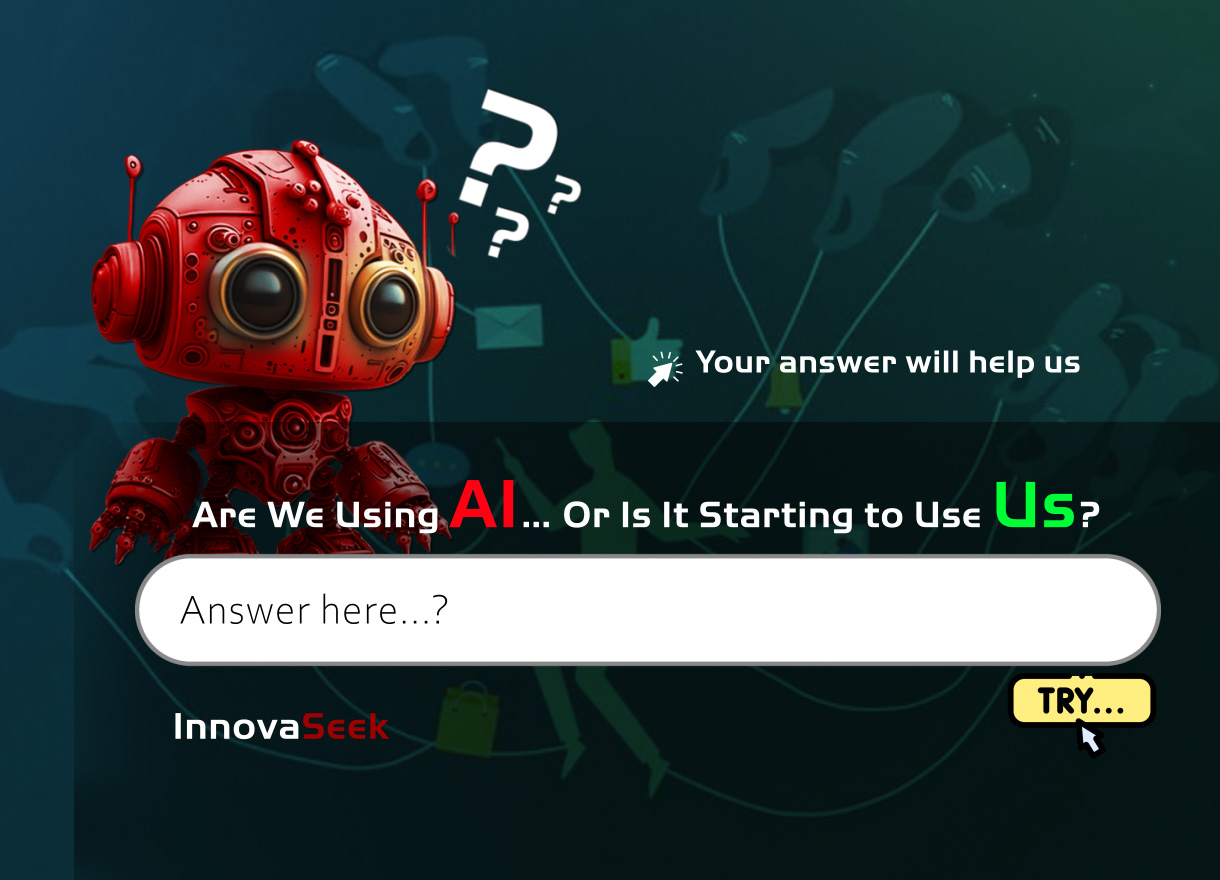Are We Using AI… Or Is It Starting to Use Us? 4 Powerful Facts That Will Change Your View
In an time where advancement is quickening at an exceptional pace, counterfeit insights (AI) stands at the apex of innovative advance. It has gotten to be an indispensably portion of our every day lives, from video proposals on YouTube to composing collaborators, therapeutic diagnostics, and career direction. But in the midst of the interest and deference, a center address develops: Are we really utilizing AI as we ought to? Or have we gotten to be so subordinate on it that it’s really utilizing us—without us realizing it?

In this article, we investigate four key thoughts that might in a general sense alter the way you see counterfeit insights:
1. AI Doesn’t Hold up for Your Enlightening… It Discreetly Guides You
Savvy instruments are gathered to serve us; we utilize them when we require them and coordinate them agreeing to our needs. But the reality is faraway more complex.
The calculations that oversee social media stages and look motors now not hold up for you to tell them what you want—they expect it and direct you toward it. For illustration, on TikTok or Instagram, you do not indeed have to be look any longer; substance finds you based on your past behavior.
This might appear accommodating on the surface, but what frequently goes unnoticed is that these suggestions are slowly forming our considering, impacting our inclinations, and indeed influencing our convictions. We think we’re in control of what we see, but in truth, we’re being guided by undetectable code.
2. Savvy Collaborators Are Unobtrusively Slaughtering Human Aptitudes
At to begin with look, this might not appear disturbing: instruments like ChatGPT offer assistance us compose emails, redress language structure, and summarize books. It sounds effective and helpful. But what happens when we disregard how to do these things ourselves?
When person abilities are supplanted by AI, our human capacities for investigation, basic considering, and inventiveness gradually start to dissolve. We designate errands to machines, at that point develop subordinate on them, and inevitably ended up incapable to operate without them. It’s a progressive disintegration of human resources, conceal as efficiency.
3. We Think We’re Using AI… But We’re Actually Feeding It
What many people don’t realize is that their daily interaction with AI feeds its growth. Every search, comment, and uploaded image is stored and analyzed to reshape the AI model and improve its ability to “understand” you.
The problem isn’t just the loss of privacy—it’s that we’ve become part of the machine’s learning process, unpaid and unaware. We’re not just users of AI; we’re fuel for its development.
In that sense, the user becomes a resource—one that’s mined for data and reintegrated into the system, creating a cycle that we no longer fully control or even perceive.
4. The Age of “Free Choice” Is Nearing Its End
Perhaps the greatest danger is not in using AI for everyday tasks but in its influence over life-altering decisions. Imagine your educational path, job options, or even romantic choices being shaped by suggestions from systems based on your data.
What looks like freedom might be an illusion; we’re choosing from a list of options curated by an algorithm based on our past behavior. Gradually, the smart system starts predicting and prioritizing “probable outcomes,” steering us toward them—and stripping away the human essence of spontaneity, trial, error, and growth.
We’re encouraged to make fast decisions, driven by “smart” results—but these often lack the depth, complexity, and uncertainty that define true human experience.
Conclusion: Have We Overestimated AI?
There’s no doubt that AI is powerful and influential, and it can be an incredible ally in improving our lives. But the real question is not what it can do—it’s how far we should let it go.
If we don’t maintain a balance between conscious, intentional use of technology and the preservation of human critical thinking, empathy, and awareness, we may already be crossing into a future where we no longer use AI—it uses us.
So, is AI still serving us? Or have we begun to serve it… willingly?
We’d love to hear your thoughts in the comments—do you feel that AI is overrated? Or do you see it as an inevitable necessity for the future?

👉 Your answer will help us—and others—reflect more deeply. Don’t hesitate to share your perspective!

Are We Using AI… Or Is It Starting to Use Us? 4 Powerful Facts That Will Change Your View
Here are detailed outbound links already included in your article and suggestions to make them even more authoritative or relevant:
✅ Current Outbound Links & Suggested Improvements:
1. Algorithmic Influence
- Current Link: MIT Technology Review
- ✅ This is a strong source. You can keep it or replace it with a more recent or data-driven article from:
2. Responsible Use of AI (ChatGPT)
- Current Link: OpenAI Blog
- 🟡 This blog is more about plugins than responsibility. You might want to replace it or add a second link:
3. Data Ethics
- Current Link: World Economic Forum
- ✅ Great link. Optionally, supplement with:
4. AI in Decision-Making
- Current Link: Harvard Business Review
- ✅ Excellent choice. For further depth:
🔄 Recommendations:
- Keep your current outbound links as is (they are relevant), but consider replacing or enhancing them with more targeted or up-to-date resources listed above.
- You can also link internal terms or phrases to definitions or encyclopedic resources like:
- “Artificial Intelligence” – Wikipedia
- “Algorithmic Bias” – Wikipedia
Would you like me to insert or replace any of these links directly in the doc?
Are We Using AI… Or Is It Starting to Use Us?
Are We Using AI… Or Is It Starting to Use Us?
Are We Using AI… Or Is It Starting to Use Us?
Are We Using AI… Or Is It Starting to Use Us?



Your article helped me a lot, is there any more related content? Thanks!